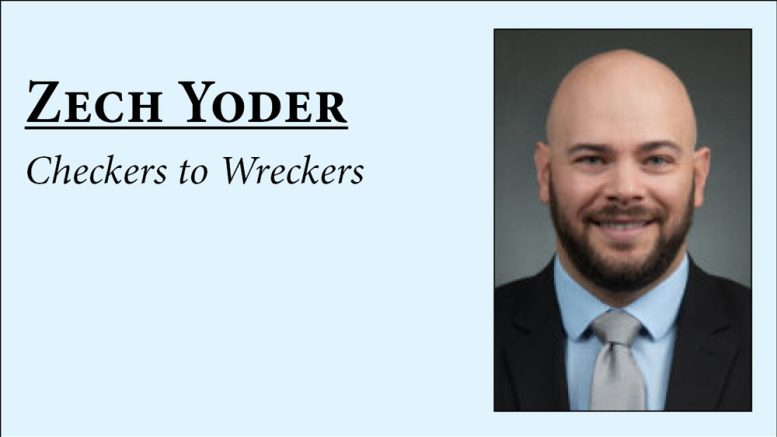By ZECH YODER
What many speculated about for months has finally become a reality. Stewart Haas Racing is selling charters. And not only selling charters, but closing up shop at the end of the 2024 season after 16 successful years in NASCAR. The Stewart-Haas disaster is almost unimaginable when you think that Kevin Harvick led the NASCAR Cup Series in wins with nine just four seasons ago in 2020.
As details about the end of Stewart-Haas are sure to trickle out over the next months and years, my interest is in SHR’s charters.
A charter is to the NASCAR Cup Series what a franchise is to the NFL. Like in the NFL, there are a limited number of charters and owning a charter comes with many perks. For instance, each charter shares in the revenue with NASCAR. Teams with charters will be paid a certain amount per charter per year. Additionally, each charter is guaranteed a starting spot in every race of the season. Finally, a charter can be bought and sold.
The charter system was established in 2016 when NASCAR and the Race Team Alliance entered the first charter agreement. The purpose was to recognize the investments race teams were making in NASCAR by providing race teams with an a “tangible” asset that would appreciate over time. Prior to the charter system, there was no prerequisite for entering or leaving the Cup Series. Teams like Robert Yates Racing, that made tremendous contributions to the growth and success of the NASCAR, left the Cup Series with literally nothing to show for its long-term investment in the sport. The charter system provided teams owners an investment stake in NASCAR.
The NASCAR charters system is made up of 36 charters and is limited to the Cup Series. Teams competing in the Xfinity Series and the Craftsman Truck Series do not have charters. For 2016, charters were given to teams that run a full-time schedule in the prior three seasons (2013, 2014, 2015).
Since the 2016 season, the price of a charter has skyrocketed. Last year, Spire Motorsports reportedly purchased a charter for $40 million. However, the first charter agreement is in its final year, and there has been heated debates between NASCAR and the Race Team Alliance (team owners) concerning a new charter agreement with neither side willing to sign a new agreement. As a result, the value of a charter has likely decreased from last year. Moreover, with four charters hitting the market in 2024, the market value may take an even larger hit.
So, what does all this mean for race teams? It’s a great time to buy a charter.
NASCAR and the Race Team Alliance is likely going to work out their differences and ink a new deal. There is too much upside in NASCAR right now for either side to hold out much longer.
Further, the Gen7 car has made it easier for small teams to compete. Team like Kaulig Racing and Front Row Motorsports have demonstrated that small team can win Cup Series races with the Gen7 car.
Right now, it appears that three of the four Stewart-Haas charters are taken. Front Row Motorsports have reportedly paid between $20 and $25 million for a Stewart-Haas charter. It is also expected that 23XI and Trackhouse Racing will be purchasing charters, making each of those teams three-car teams.
The final Stewart-Haas charter is interesting. I think Rouse Fenway Keselowski Racing would want to expand to three teams as well. RFK Racing has shown tremendous progress over the last two years and have been the best Ford team in the garage so far this season. Given the new support from Toyota, Legacy Motor Club may be able to buy the final charter, but the $25 million price tag is no joke.
It will be fun to watch the landscape shift of the Cup Series garage. It will also be interested to see which young drivers get a Cup Series opportunity. But what happens to the drivers and teams of Stewart-Haas Racing? Stay tuned …
Zech Yoder is a local resident, an attorney at Adler Attorneys in Noblesville, and a lifelong race fan.

